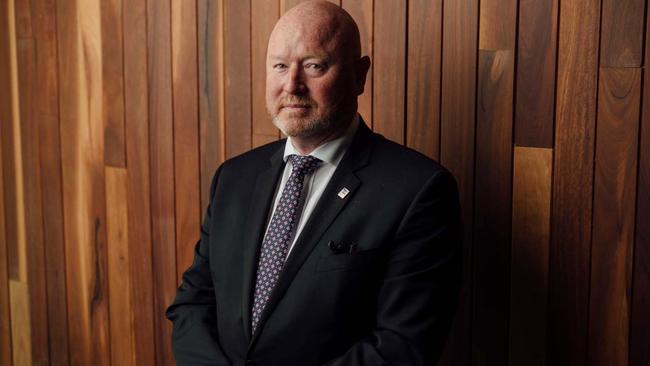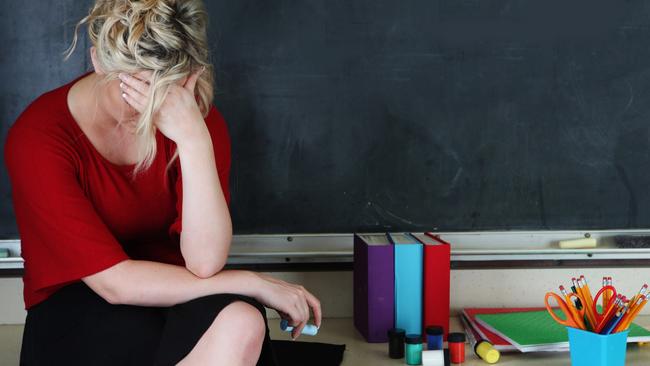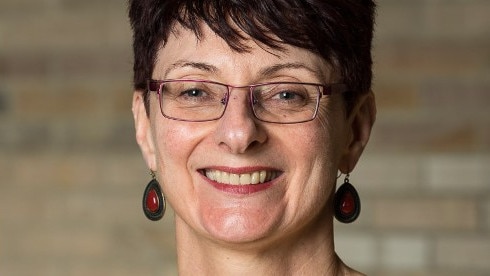Tasmanian school principals: Ranks ‘thinning’ amid burnout, intensifying social media abuse
A Tasmanian educator has called out parents using the “cowards’ castle” of social media to abuse and stigmatise school principals, as experts warn of a “major crisis” in principal recruitment and retention.

News
Don't miss out on the headlines from News. Followed categories will be added to My News.
Urgent work needs to be done to address the current “major crisis” in principal recruitment and retention, driven by stress, burnout and intensified workloads, experts warn.
A new study led by Monash University’s Faculty of Education aims to shed light on the “invisible challenges” facing school principals which are pushing many “to the brink”.
The survey will gather the “testimonies” of Australian principals in public schools to study the current issues and emotional demands they are facing.
Lead researcher and Professor of Educational Leadership Jane Wilkinson said more work is needed to address principals’ excessive workload.
“It’s the emotionally draining nature of the work, the ‘hard’ hours where principals are dealing with more and more demanding, emotionally-intense situations as they support troubled staff, students and parents,” she said.

Professor Wilkinson said principals have to deal with high levels of anxiety and stress daily, all while managing their own emotions.
“This includes children’s behaviour, particular kids who are acting out in anti-social ways,” she said.
“One former principal who took part in the survey said he could still feel the bruises on his ankle as he recounted a child who used to act out and kick him daily. He could still feel the pain six years later.”
Chief investigator Professor Lucas Walsh added these stressful encounters can lead to “chronic stress, burnout and low job satisfaction”.
The three-year project, which is funded by the Australian Research Council, will aim to improve leadership preparation and development for school principals to help them manage these complex demands.
Professor Wilkinson said the long term goal is to reduce principal turnover and improve teacher retention, student outcomes and social cohesion.

Hobart education consultant Malcolm Elliott, a former principal at New Norfolk and Claremont high schools and past president of the Australian Primary Principals Association and Tasmanian Principals Association, says the wellbeing of principals is an issue of the “utmost seriousness”.
“The next generation of prospective school leaders is rapidly thinning,” he said.
“People who would normally be considering applying for positions as school leaders are declining on the basis of why would I take on extra responsibility when I can start at a level lower without that responsibility and enjoy the role.”
He said it was critical that ways to reduce workloads for principals be found.
“There is an insufficiency of resourcing. The role has become more complex but administrative support for school leaders hasn’t grown alongside that,” Mr Elliott said.
'Electronic abuse': the big time-waster for principals https://t.co/MAAWXctmdM via @smh
— Malcolm E Elliott (@malcolmelliott8) July 11, 2017
“All principals are teachers, what they want to do is provide leadership, but if they’re stuck behind computers every day answering emails and completing administrative tasks like risk assessment, it takes principals away from what the community think principals are doing and what principals want to do.”
The advent of social media – “cowards’ castle,” Mr Elliott calls it – has made the job of being a principal increasingly toxic.
“There is an undermining of trust in the profession,” he said.
“It’s a social trend we see in other professions too. People feel it’s their right or entitlement to be abusive towards people providing foundational services.
“It’s made life very, very difficult for many people, the pervasive negative effect of social media.”
A Victorian principal, who has worked in the profession for almost two decades, said the job had taken a “serious toll” on his mental health.
“I’ve had students attack me and my staff. There’s been instances of angry parents abusing me over the phone and via email, it can be very stressful,” he said.
“I also know of other principals that have been forced to go on WorkCover because of serious incidents.”
Retired school principal of 15 years, Pitsa Binnion, said most of a principals’ time is spent dealing with “intense critical matters”.
“You are always navigating difficult relationships and very complex matters. All of it takes a toll,” she said.
“There is help available but you are intrinsically responsible and you’re often left exhausted at the end of each year.”
It comes as a recent survey found almost a third of Victorian principals have been physically attacked by aggressive students or parents.
More Coverage
Originally published as Tasmanian school principals: Ranks ‘thinning’ amid burnout, intensifying social media abuse




